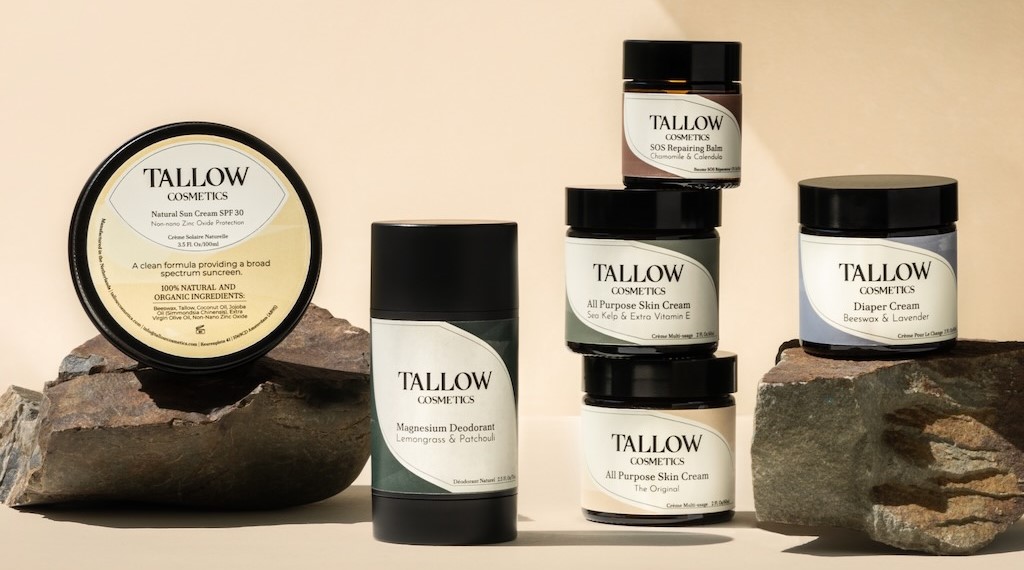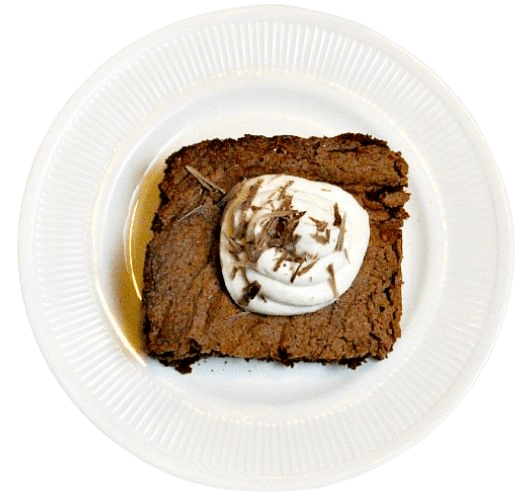Raw flour from green bananas nejedná se o plantajny, ale pravé banány - 450 g
Flour from green bananas, which are a heirloom variety, from Ceylon Kokonati works as an alternative to classic white refined flour. It is rich in fibre and is naturally gluten-free. It is made from only one high quality ingredient - chopped, dried and powdered organic green banana.
It is free of sweeteners, preservatives, added sugar and other unnecessary fillers. When baking, you can use much less banana flour than wheat flour. Experiment with your recipes.
Since it largely mimics wheat flour, the transition to banana flour is quite easy. It is much lighter than many other alternative flours, such as nut flours. It can be used alone or in combination with other flours. Banana flour has a high starch content, which means you can use less flour overall. The rule of thumb is to use 25% less banana flour than the flour listed in the recipe.
Banana flour has a naturally slightly sweet taste and a light banana aroma. It is naturally gluten-free, raw, vegan, suitable for keto diet.
Banana flour has multifunctional uses
- You can use it for cooking, baking, but also in a raw kitchen.
- For example, add a spoonful to your favourite smoothie to increase its nutritional value.
- Or substitute it for some of the regular flour and sugar when baking muffins, cakes, cookies or bread.
- You can use it to thicken sauces, various dips, dressings, curry sauces or to create sweet fillings for baked goods.
- Mix in a blender with chopped nuts, dried fruit and seeds and you have a great sweet keto and raw snack bar.
- Or you can mix with desiccated coconut, nuts, seeds, a little salt and spices to make salty balls.
- Stir in plant or regular milk, add granola and you have a nutritious breakfast.
Why use banana flour from (unripe green bananas)
- Delicious mild banana taste.
- Ideal for "raw baking".
- A good source of friendly digestive bacteria.
- Excellent thickener for use in stews or sauces.
- Nutritional enrichment of any dish.
- A good choice if you are looking for gluten and nut free flour.
- Low sugar content and low glycaemic response.
- A great source of resistant starch when used raw.
- High potassium and magnesium content.
- A great flour if you suffer from insulin sensitivity.
- It induces a feeling of satiety and can be an aid in weight loss.
- High prebiotic fibre content.
- Rich in resistant starch, which is beneficial for gut health.
What are the advantages of resistant starch?
Resistant starch is said not to break down easily into sugars, and so helps regulate the healthy course of your digestion. It is not fully processed in the small intestine and instead ends up in the large intestine, where it forms short-chain fatty acids that can help protect cells. However, the amount of beneficial resistant starch decreases when the flour is baked at temperatures above 60 °C.
This study came up with this conclusion:
'Many studies in food technology show the wide potential of various industrial resistant starch-based products as functional additives in ready-to-eat foods. There are high hopes for the development of this part of functional foods, especially in terms of the health benefits described in the review.
Resistant starch is an important substrate for the synthesis of short-chain fatty acids; it may have health benefits, e.g. improved glucose tolerance, greater cellular insulin sensitivity and increased satiety after meals are other potential benefits of resistant starch in the diet.
However, resistant starch is not a well-studied and documented component of the diet and as a result is underestimated and its consumption in developed countries is low.
The studies cited in this review do not provide sufficient evidence to support the effect of RC on weight loss or appetite reduction in healthy, overweight or metabolic syndrome individuals. The complexity of the metabolic processes involved in reducing food intake and satiety means that they are not well understood, and further studies in larger groups are needed to demonstrate this effect.
It is also essential to expand research on the influence of food processing methods on the formation of resistant starches in products and the possibility of increasing their content. Future research that takes all these aspects into account will help to increase the knowledge and use of this dietary component in disease prevention.'
- If you want to take advantage of the potential benefits of resistant starch, you need to eat banana flour in its raw state.
- We recommend using banana flour in your morning smoothie or other cold drink.
- If you're after gluten-free flour, it doesn't matter - both cooked and raw will do the job.
What is a heirloom variety?
A so-called heirloom variety (whether of plants, seeds, fruits or vegetables) is an open-pollinated variety that was commonly cultivated in earlier times in human history, but is not used in modern large-scale agriculture because of the cartel-like behavior of a large corporation like Monsanto, which is behind the destruction of ancient seeds and the food chain in general across the planet.
See the document below. And here is a link to the website of a Canadian university, The University of British Columbia, which explains briefly what it is. If you do not speak English, use the online translator: deepl.com
We have translated this paragraph from the English Wikipedia:
Before the industrialisation of agriculture, a much wider variety of plant foods were grown for human consumption, mainly because farmers and gardeners saved seeds and cuttings for future planting. From the 16th century to the early 20th century, the diversity was enormous. The old nursery catalogues were full of plums, peaches, pears and apples of many varieties and the seed catalogues offered legions of vegetable varieties. These catalogues were used to sell and trade valuable and carefully selected seeds along with useful advice on growing.
Since the Second World War, agriculture in the industrialised world has consisted mainly of food crops grown on large monoculture plots. Only a few varieties of each type of crop are grown to achieve the greatest consistency. These varieties are often selected for their productivity and their ability to ripen at the same time and withstand mechanical harvesting and transport across borders, as well as their resistance to drought, frost or pesticides. This form of agriculture has led to a 75% decline in the genetic diversity of crops.
Although heirloom or heirloom cultivation has retained its place in local communities, it has seen a resurgence in recent years in response to the trend towards industrial agriculture. In the southern hemisphere, heirloom plants are still widely cultivated, for example in home gardens in South and Southeast Asia. Before the Second World War, most of the products grown in the United States were heirloom varieties, but this was abandoned with the arrival of Monsanto.
Other sources of articles:
The practice of Monsanto and BASF of Germany in pushing dicamba (a weed killer) on American farmers
The Guardian:Revealed: Monsanto predicted cropping system will damage US farms
In the 21st century, many communities around the world are working to preserve historic varieties so that a wide range of fruits, vegetables, herbs and flowers are once again available to growers by restoring old orchards, sourcing historic fruit varieties, engaging in seed swaps and encouraging community participation.
Recipe for gluten-free banana flour brownies
Gluten-free brownies don't have to be dense and tasteless - these gluten-free banana flour brownies are moist and delicious.
Ingredients
- 3/4 cup organic honey or coconut syrup
- 3/4 cup organic coconut oil
- 2 organic free-range eggs
- 1 cup banana flour
- 3/4 cup organic unroasted cocoa or grated chocolate
Preparation
- Preheat the oven to 180 degrees.
- Mix honey/syrup and coconut oil in a bowl.
- In a separate bowl, mix the banana flour and cocoa powder.
- Add the dry ingredients to the honey and coconut oil and mix.
- Add the eggs, one at a time, and beat well.
- Pour the batter into a 20x30 cm pan that has been greased with coconut oil.
- Bake for 20-30 minutes.
- Let the brownies cool slightly before slicing and serving.
- Baking times may vary, so check brownies for doneness with a toothpick/spread stick after 20 minutes.

Ceylon Kokonati uses only single origin, ethically harvested non GMO ingredients for their products. Their products are vegan, gluten-free, suitable for keto, paleo and raw diets. They do not contain any refined white sugar.
By buying them, you support traditional livelihoods and reduce your carbon footprint - because the products are produced and packaged right at the harvest site. Ceylon Kokonati strives for 100% zero waste production.
This product is internationally accredited by Control Union, certified organic (EU and USDA NOP), ISO and/or HACCP certified.
Ceylon Kokonati manufactures its products in a family-run sweatshop, pays fair prices to its suppliers and manufacturers, and incorporates generations of knowledge into its production processes. It uses only the highest quality ingredients. So you can be sure that you are getting premium quality at a premium price. By buying flour, you support the traditional livelihoods of villagers in the dry areas of Sri Lanka. This allows the villagers to benefit from their years of knowledge and expertise.
The sale of these products plays a vital role in employment and economic support for the village community. Ceylon Kokonati provides the children of its employees with school books and stationery for the entire school year.
Read more on this topic
Fruit flours I. - Breadfruit flour
Fruit flours II - Green banana flour
Gluten-free diet not only for celiacs?
Discover low carb or more energy, less sugar
What to eat in winter to stay healthy?
How to prevent Christmas overeating or mitigate its effects
Enhance your workout with the right and effective supplements
Additional parameters
| Category: | Flour |
|---|---|
| EAN: | 4796010580804 |
| Vhodné pro: | Keto-Paleo-GMO Free-Vegan-Bezlepková dieta-LowCarb |
| Výrobce: | Ceylon Kokonati |
| Země původu: | Srí Lanka |
| Proč koupit: | Jediná ingredience, balena u zdroje, nikdy žádné příměsi, single-origin, GMO-free a vegan. |
Green Banana and Plantains on Ketogenic Diet Explained By Dr. Berg
Green Banana Flour Bread recipe
Green Banana Flour Pancakes recipe
Green Banana Flour Tortilla Wraps recipe
Be the first who will post an article to this item!
The Ceilon Kokonati brand was established in 2013. In its range you can find a variety of high quality and affordable products made from sustainably produced coconuts, spices and tropical fruits.
The brand's name refers to the country that its founders consider home, Ceylon, Sri Lanka, where the coconuts for the coconut line of products are grown and processed. Ceylon, a British Crown Colony from 1815-1948, is now known as Sri Lanka, but the founders of the brand prefer to call it Ceylon because it definitely sounds more exotic and "pure Ceylon" is a brand in itself, reminiscent of the fresh unique essence of pure Ceylon tea. "Kokonati" on the other hand is Maori for coconut, so absolutely the most appropriate brand name for the most coconutty goodness ever.
The Ceilon Kokonati brand is run by a married couple. The female founding half is Mrs. Bûmika, which means Lady of the Earth in Sanskrit. Her great-grandfather was one of the pioneers of coconut oil pressing in Ceylon, making her the fourth generation of coconut oil presser. The male founding half, Mr. Mosqi, in turn, is originally a pure Ceylon tea grower.
Ceylon Kokonati is wholly owned and operated in New Zealand. Loose products from Kokonati uses several ethical brands that produce clean, organic food and beauty products. By selling Kokonati products, rural communities and traditional livelihoods are supported. All their products are ethically harvested and there is almost no waste in their production. Each part of the coconut is used in the production of a different product. Kokonati products are single-ingredient, packaged directly at the source, never mixed, single-species, non-GMO and vegan.
With a passion for organic, regenerative farming, sustainability and collective partnerships, Kokonati products come only from small farms and mills in rural villages in Sri Lanka. Each Kokonati product is produced in a specialized mill that produces only that type of product. Quality is therefore the best it can be, and every step of production is backed by the experience and knowledge of many generations. Ceylon is blessed with an abundance of healthy, exotic fruits, nuts, herbs and spices.
Ceylon Kokonati follows the principles of balanced living - live and let live.
They're trying to keep everything in even better condition than when they found it..

.jpg)











































































